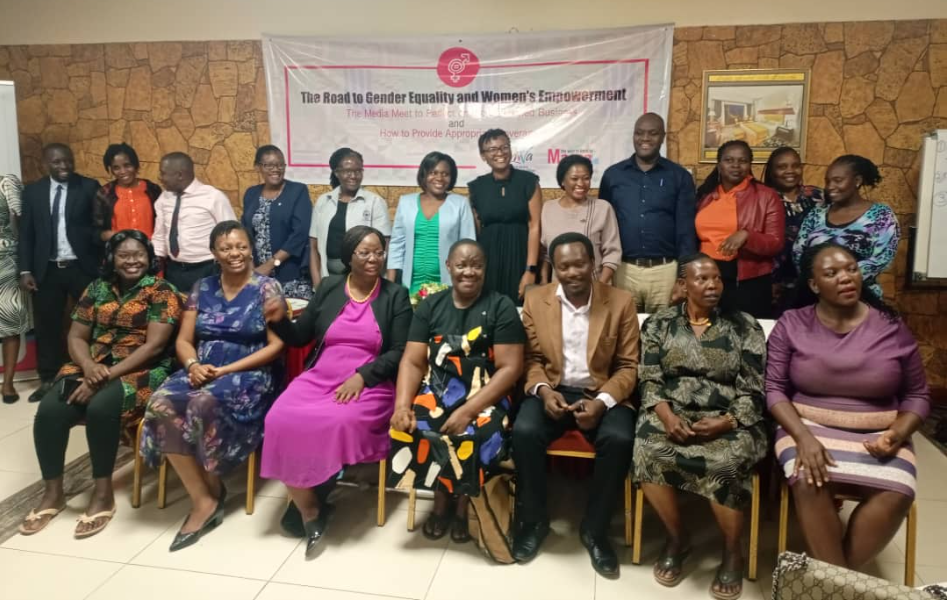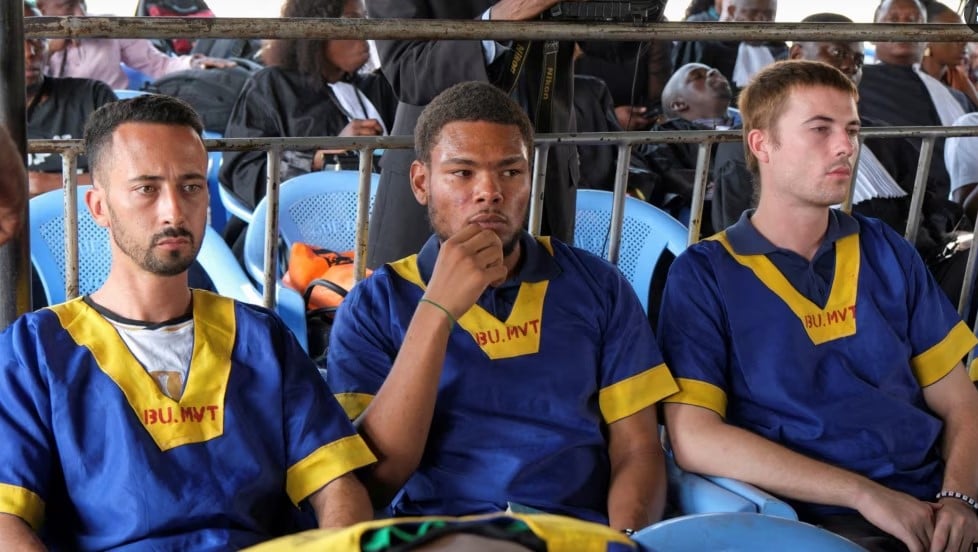Prime
Women make 25% of news sources - UMWA report

Officials from the Uganda Media Women Association, joined by different editors and members from CSOs pose for a group photo after an engagement in Kampala on March 1, 2024. PHOTO/BUSEIN SAMILU
The 2023 Gender Media Monitoring Report by Uganda Media Women Association (UMWA) has revealed that women make only 25 percent of sources quoted by different platforms.
Released March 1 in Kampala, the report showed that women were sidelined in news sourcing especially by radio and television stations in 2023.
“In print, women were only 27% visible and 18% both in radio and television,” reads part of the report.
Speaking at the release of the report, the executive director of UMWA, Margret Ssentamu, said these disparities rooted in various factors, including knowledge gaps in gender-sensitive reporting, non-specific media laws, insufficient gender mainstreaming in media training, and patriarchal tendencies in newsrooms among others remain prevalent over the rampant marginalization of the media.
“Bridging gender gaps in media is not just a moral imperative but a strategic necessity for fostering equitable development and societal progress. However, the media is marginalized in a way that for-example when you go to the schools of journalism one doesn’t study required gender equity subjects, you are just taught the five Ws &H,” she observed.
Ssentamu further added that the expectancy of the media coverage is too wide as compared to about 3000 journalists reporting on about 46 million Ugandans amidst limited government funding.
“We are talking about 46 million people covered by about 3,000 journalists, this is quite a big ratio, even without the government or other organizations investing in the media,” she said.
She therefore urged all stakeholders must team up efforts to encourage media but also hold the government accountable for formulating and implementing better policies to enable media report more gender responsively.
The report findings were released at a forum that brought together media stakeholders in an event themed “Road to Gender Equality and Women’s Empowerment: Reflecting on the Unfinished Business.”
Speaking at the forum, Radio Ssimba editor Dick Nvule called for continuously putting female journalists in charge of promoting gender equity.
“…while they get to these positions they should walk the talk because as an editor, I will only put you in the news because your content is newsworthy but not on the basis of merely being a woman,” he said.
UMWA Board Chairperson Dr Patricia Litho held that irrespective of challenges, the media should concentrate on pursuing the ‘unfinished business’ in the pursuit of attaining gender equality and women empowerment.
“We as media own the unique responsibility in shaping narratives and driving society change. We must examine the exclusivity of media education in ensuring that gender equality is an integral component of our curriculum,” she said.




